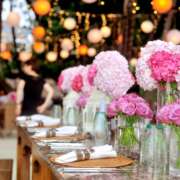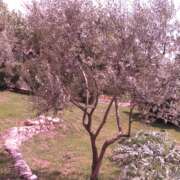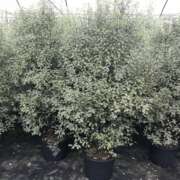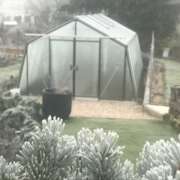Packaged for 2022 #guideconsojardin #packaging #plastic
#guideconsojardin #packaging #plastic #garden #gardenware #plastic pot #terreau #labels #pointdevente #rayonjardin
2022 heralds the end of plastic food packaging… At least, part of it. But the process is underway and we are marching towards a world free of its superfluous packaging and its procession of residues. In the garden, we are… A little concerned?
French Law !
Since January 1, 2022, the law has imposed the end of plastic packaging for fruits and vegetables.
Well, there are a few exceptions, while it takes time to find suitable solutions. We will wait until June 30, 2023 for certain tomatoes, grapes, Brussels sprouts, beans, sensitive fruits … By then the packers will be on deck to impose a suitable solution.
Plastic will still be authorized also for cherries, cranberries, lingonberries, physalis, salads… And a whole bunch of edible plants with sensitive foliage. For this category, the deadline will be December 31, 2024.
And on June 30, 2026, we will end these progressive bans with small fruits, sprouted seeds and very ripe fruits. However, there is no deposit when the weight of the lot is greater than 1.5 kilos.
In short, by following this calendar, we can feel the trend, overwrapping, packaging and plastic in general will have to be phased out.
Plastic, it’s over!
We see it happening, it is written and it has become a necessity. Plastic has invaded our lives and our oceans. Gradually, we will find solutions for recycling, transformation, recovery, replacement … All means will be implemented to limit this waste abandoned here and there in nature.
The government has given itself until 2040 to put an end to disposable plastic, which mainly concerns packaging.
Today, we must find the solutions to change this trend.
It all started with the simplest: plastic bags in the cash register, disposable dishes, cotton swabs, straws …
And tomorrow will you tell me? Tomorrow we are all going to take the slider step by step together.
Packaging is so deeply rooted in our daily lives that it seems impossible to us today to do without. Bulk has its limits. And in the garden, « I’m not telling you » … If we look closely at our shelves, for the moment we are unable to do without plastic … And yet … tick-tock-tick-tock … 2040 …
“Val’Hor”
Fortunately, our profession has taken the lead. Since 2019, a study has been carried out by the inter-profession to understand the extent of the problem.
Well yes, because on the horticultural side, the plants are all or almost all sold with their plastic pots. Here we have a good bunch of tons of small buckets likely to end up in our environment! In September 2020, the board of directors of Val’hor decided to initiate ecodesign and collection projects to bring these small containers home!
The site is enormous and the replacement of these containers by squeezed clods or biodegradable pots is also a possibility for our profession.
Beyond the technical constraints, the image given by a jar floating in the water could appeal to consumers who are increasingly attentive to this type of waste!
And that our profession take the matter in hand, this is very good news! Thank you for this initiative.
Victory ?
Not yet, if the plant management is on, there are other details to work out. This is the case with bags of potting soil. Although research is ongoing, we still have plastic on our hands. The vegetable trays and suspensions are also to be managed, as are the labels. And then, when we talk about big plants, there are big pots. A priori, they are recycled in trash or multi-use container by the amateur gardener, but some remain on the sidelines …
Our difficulty is the multiplicity of companies that make up our market. It is true that a CSR policy affects large companies more easily. The SME does not yet have an obligation on the subject, and our main force for moving forward is bringing together reflections through an inter-professional organization, as Val‘hor did for containers.
At a time when Decathlon indicates the environmental rating of its products, we could take inspiration from them! To meet the expectations of new gardeners, we too could rate our plants: kilometers traveled, method of cultivation, recycling of packaging, labels, sustainability, etc.
So, individual or collective initiative? In any case, we will have to start well… Tic-tac-tic-tac… 2040!
Roland Motte… Gardener!












Laisser un commentaire
Rejoindre la discussion?N’hésitez pas à contribuer !